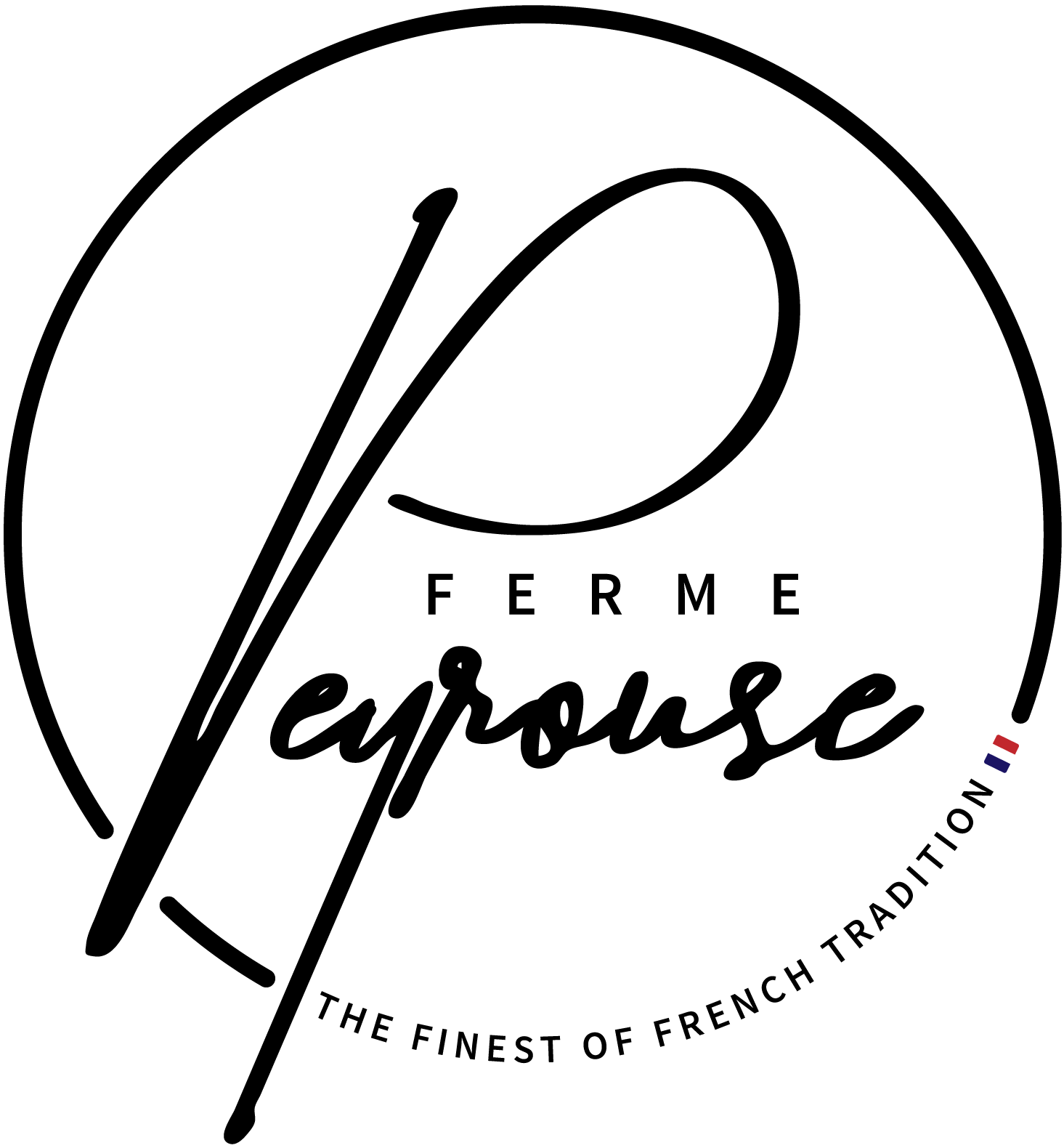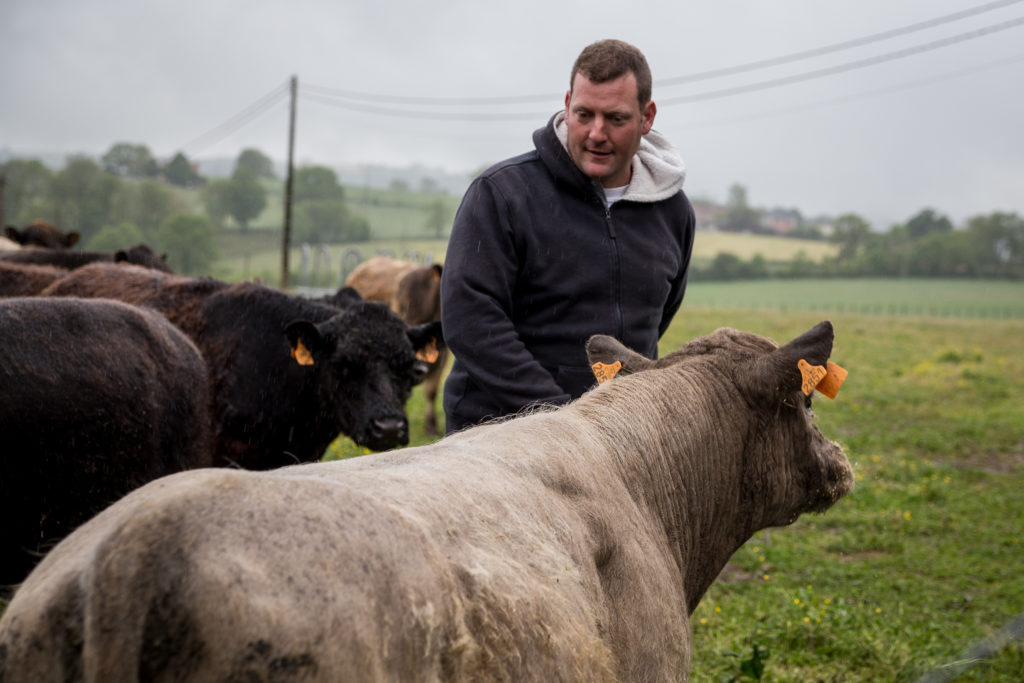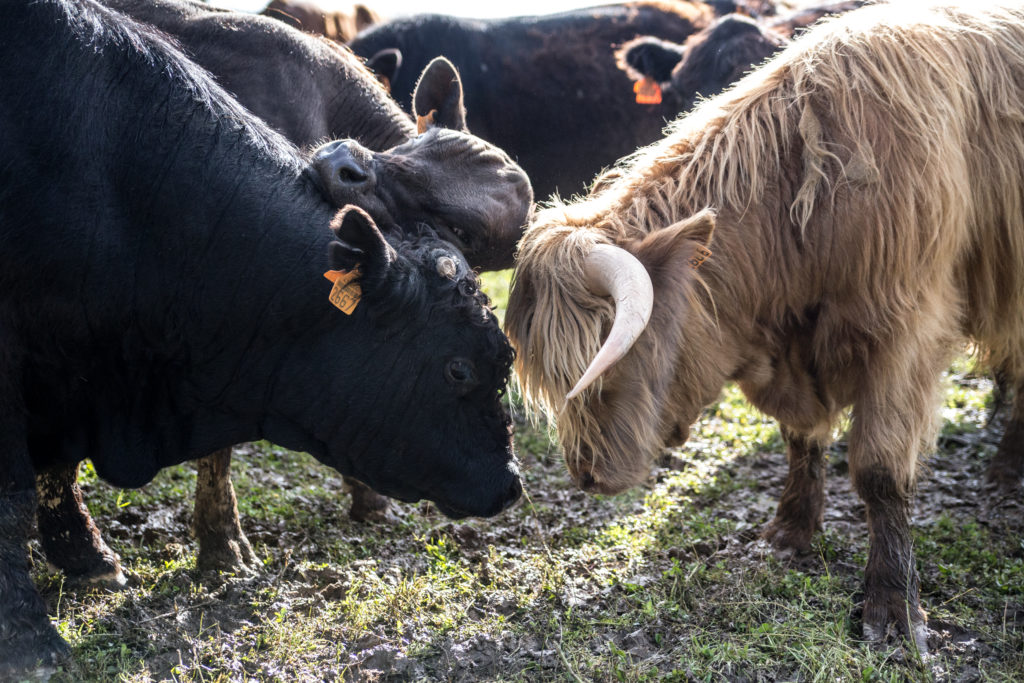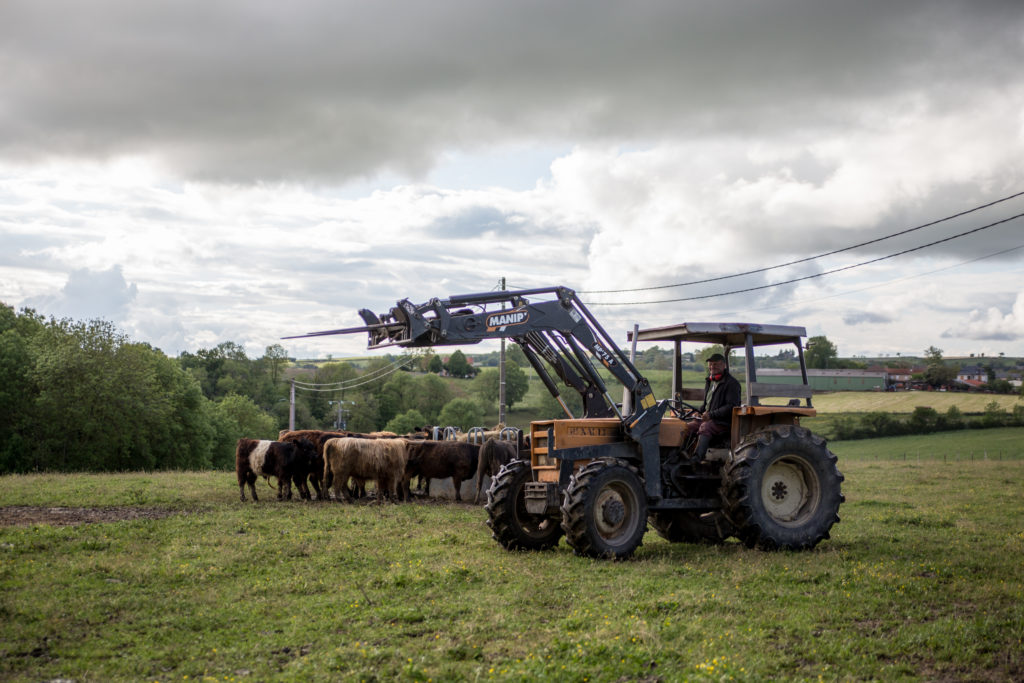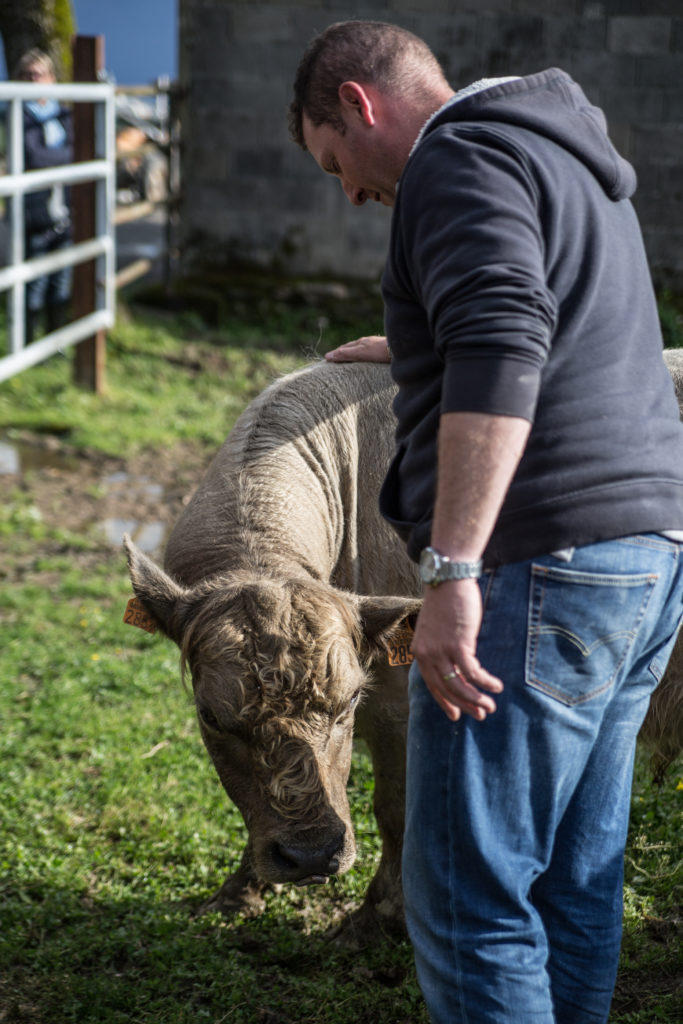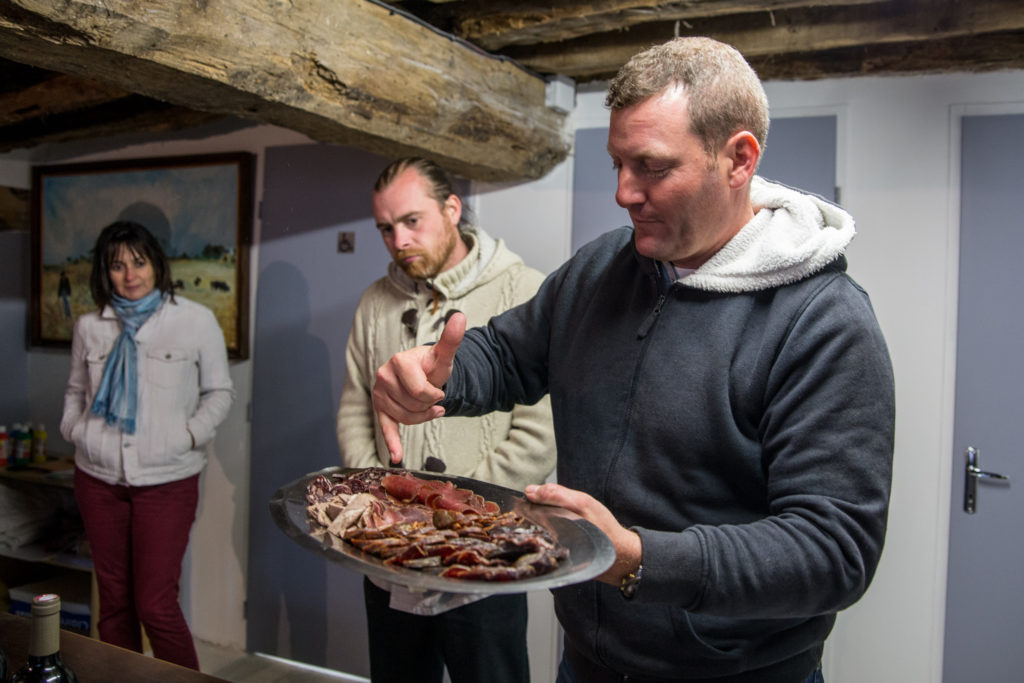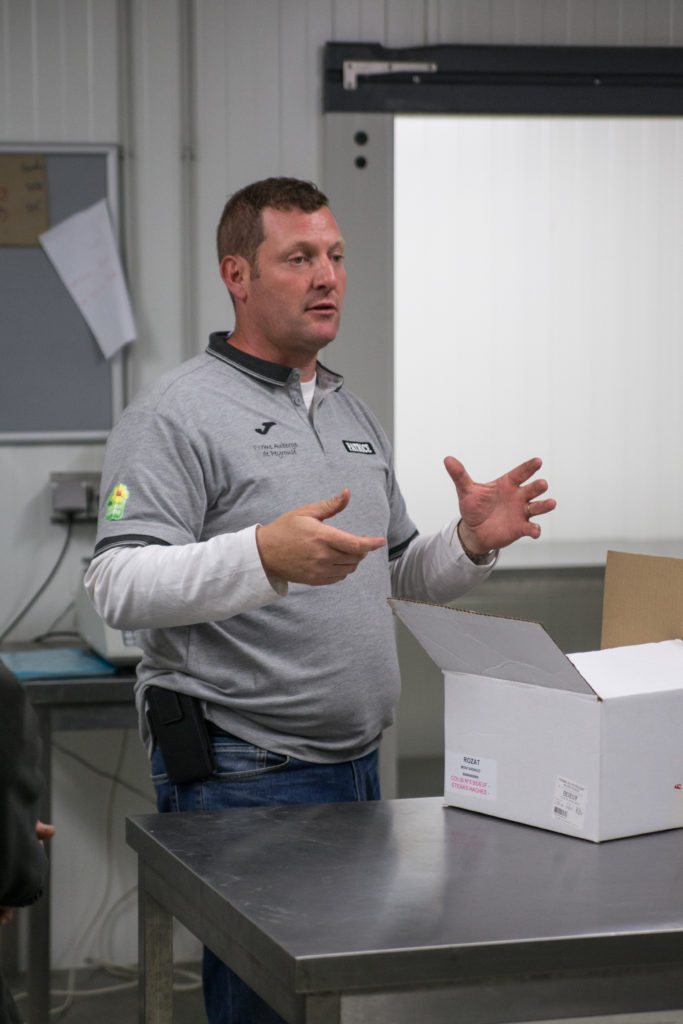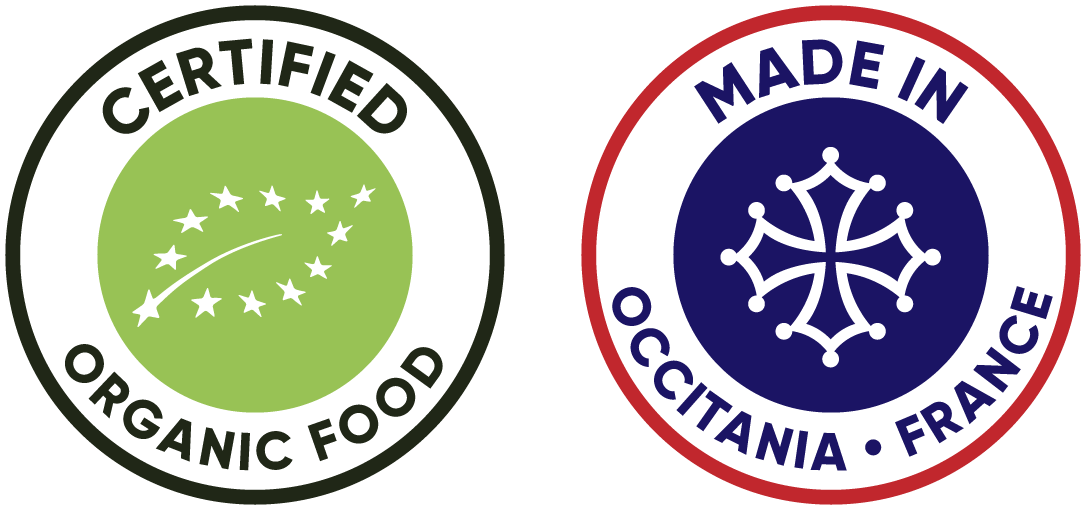From generation to generation, we have handed down the craftsmanship of our ancestors.
500 metres above sea level, in Padiès, Occitanie region, the South West region of France, second largest French agricultural region and the first one on organic agriculture, the Ferme Peyrouse carries on a vocation of cattle breeders in the heart of Ségala in Tarn for several generations. Eugène and Baptistine, Rolland’s grandparents, built their house and worked very hard to cultivate even the smallest piece of land from 1928 to 1964. Albert and Georgette, Rolland’s parents, continued and expanded the farm until Rolland and Dominique took over in 1976. Today, the farm is 55 acres large – which is a relatively small property – where the cattle eat grass and where the cereals are harvested to feed the herd of 50 Galloway cows.
1999
The direct selling
In 1999, the crisis of “mad cow disease” (BSE) was discovered and the meat price collapsed. The calves (the veals) were sold cheaper than the cost price. Dominique decided, then, to start the direct sell of veal.
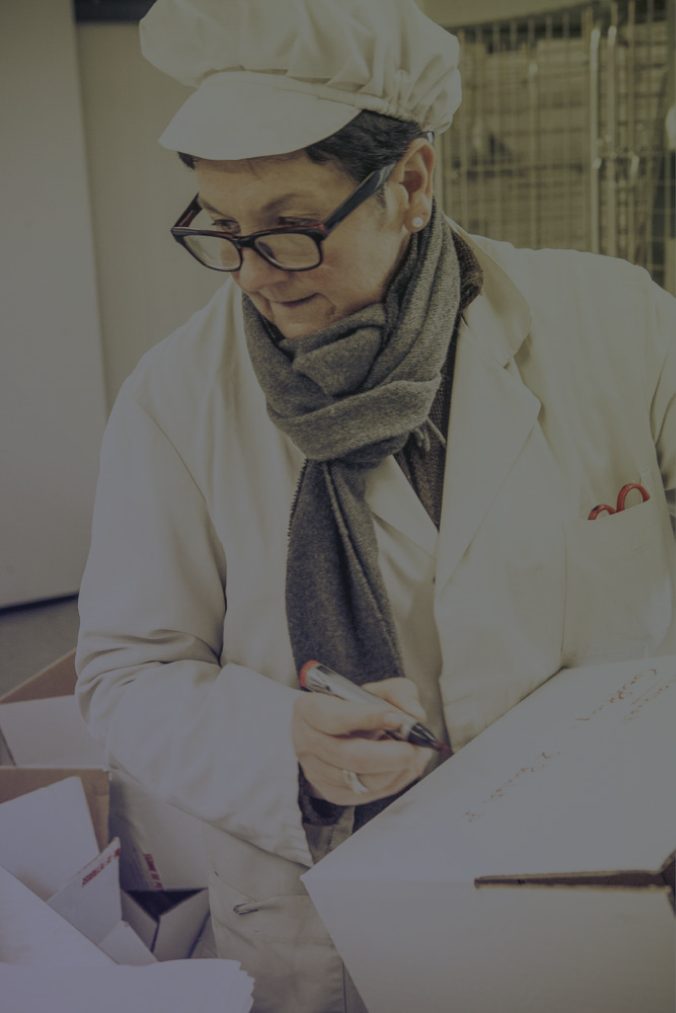

2011
The succession
In 2011, Patrice – who started his career in the banking industry and advertising – decided to return to his roots to take over the family estate. After spending one year in school to get his degree of “Professional Certification of Agricultural Management”, he became the manager of La Ferme de Peyrouse in April 2013. Patrice started a small apple juice production in addition to veal and beef meat production of Limousin cattle. In 2018, Patrice wanted to start over and modified everything in his farm: he replaced his Limousin cattle with Galloway cattle. This breed is a small and rustic one, very well adapted to the continental weather of Padiès, France. The cows are also able to eat all kind of grass and plants (from the best ray-grass to bramble bush). Thanks to this, the meat of Galloway cattle is fatless, rich in omega 3 and 5 and does not taste the same as Limousin. The typicality of the Galloway is exceptional by its breed itself, by our way of breeding and our know-how which is now a combination of ancient skills and techniques, of current knowledge, and an adaptation to the needs of our time.
